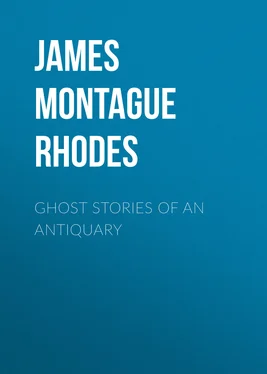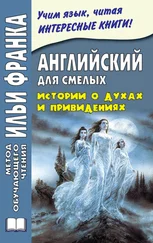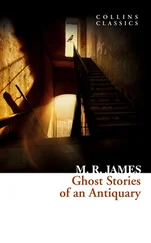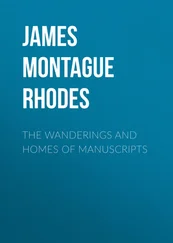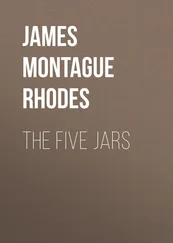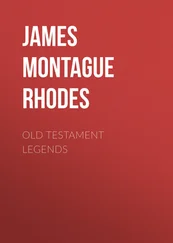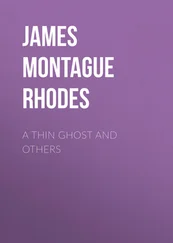Montague James - Ghost Stories of an Antiquary
Здесь есть возможность читать онлайн «Montague James - Ghost Stories of an Antiquary» — ознакомительный отрывок электронной книги совершенно бесплатно, а после прочтения отрывка купить полную версию. В некоторых случаях можно слушать аудио, скачать через торрент в формате fb2 и присутствует краткое содержание. Жанр: foreign_prose, Европейская старинная литература, foreign_antique, на английском языке. Описание произведения, (предисловие) а так же отзывы посетителей доступны на портале библиотеки ЛибКат.
- Название:Ghost Stories of an Antiquary
- Автор:
- Жанр:
- Год:неизвестен
- ISBN:нет данных
- Рейтинг книги:4 / 5. Голосов: 1
-
Избранное:Добавить в избранное
- Отзывы:
-
Ваша оценка:
- 80
- 1
- 2
- 3
- 4
- 5
Ghost Stories of an Antiquary: краткое содержание, описание и аннотация
Предлагаем к чтению аннотацию, описание, краткое содержание или предисловие (зависит от того, что написал сам автор книги «Ghost Stories of an Antiquary»). Если вы не нашли необходимую информацию о книге — напишите в комментариях, мы постараемся отыскать её.
Ghost Stories of an Antiquary — читать онлайн ознакомительный отрывок
Ниже представлен текст книги, разбитый по страницам. Система сохранения места последней прочитанной страницы, позволяет с удобством читать онлайн бесплатно книгу «Ghost Stories of an Antiquary», без необходимости каждый раз заново искать на чём Вы остановились. Поставьте закладку, и сможете в любой момент перейти на страницу, на которой закончили чтение.
Интервал:
Закладка:
One November evening Stephen was sitting by the fire in the housekeeper's room reflecting on his surroundings.
'Is Mr Abney a good man, and will he go to heaven?' he suddenly asked, with the peculiar confidence which children possess in the ability of their elders to settle these questions, the decision of which is believed to be reserved for other tribunals.
'Good?—bless the child!' said Mrs Bunch. 'Master's as kind a soul as ever I see! Didn't I never tell you of the little boy as he took in out of the street, as you may say, this seven years back? and the little girl, two years after I first come here?'
'No. Do tell me all about them, Mrs Bunch—now, this minute!'
'Well,' said Mrs Bunch, 'the little girl I don't seem to recollect so much about. I know master brought her back with him from his walk one day, and give orders to Mrs Ellis, as was housekeeper then, as she should be took every care with. And the pore child hadn't no one belonging to her—she telled me so her own self—and here she lived with us a matter of three weeks it might be; and then, whether she were somethink of a gipsy in her blood or what not, but one morning she out of her bed afore any of us had opened a eye, and neither track nor yet trace of her have I set eyes on since. Master was wonderful put about, and had all the ponds dragged; but it's my belief she was had away by them gipsies, for there was singing round the house for as much as an hour the night she went, and Parkes, he declare as he heard them a-calling in the woods all that afternoon. Dear, dear! a hodd child she was, so silent in her ways and all, but I was wonderful taken up with her, so domesticated she was—surprising.'
'And what about the little boy?' said Stephen.
'Ah, that pore boy!' sighed Mrs Bunch. 'He were a foreigner—Jevanny he called hisself—and he come a-tweaking his 'urdy-gurdy round and about the drive one winter day, and master 'ad him in that minute, and ast all about where he came from, and how old he was, and how he made his way, and where was his relatives, and all as kind as heart could wish. But it went the same way with him. They're a hunruly lot, them foreign nations, I do suppose, and he was off one fine morning just the same as the girl. Why he went and what he done was our question for as much as a year after; for he never took his 'urdy-gurdy, and there it lays on the shelf.'
The remainder of the evening was spent by Stephen in miscellaneous cross-examination of Mrs Bunch and in efforts to extract a tune from the hurdy-gurdy.
That night he had a curious dream. At the end of the passage at the top of the house, in which his bedroom was situated, there was an old disused bathroom. It was kept locked, but the upper half of the door was glazed, and, since the muslin curtains which used to hang there had long been gone, you could look in and see the lead-lined bath affixed to the wall on the right hand, with its head towards the window.
On the night of which I am speaking, Stephen Elliott found himself, as he thought, looking through the glazed door. The moon was shining through the window, and he was gazing at a figure which lay in the bath.
His description of what he saw reminds me of what I once beheld myself in the famous vaults of St Michan's Church in Dublin, which possesses the horrid property of preserving corpses from decay for centuries. A figure inexpressibly thin and pathetic, of a dusty leaden colour, enveloped in a shroud-like garment, the thin lips crooked into a faint and dreadful smile, the hands pressed tightly over the region of the heart.
As he looked upon it, a distant, almost inaudible moan seemed to issue from its lips, and the arms began to stir. The terror of the sight forced Stephen backwards and he awoke to the fact that he was indeed standing on the cold boarded floor of the passage in the full light of the moon. With a courage which I do not think can be common among boys of his age, he went to the door of the bathroom to ascertain if the figure of his dreams were really there. It was not, and he went back to bed.
Mrs Bunch was much impressed next morning by his story, and went so far as to replace the muslin curtain over the glazed door of the bathroom. Mr Abney, moreover, to whom he confided his experiences at breakfast, was greatly interested and made notes of the matter in what he called 'his book'.
The spring equinox was approaching, as Mr Abney frequently reminded his cousin, adding that this had been always considered by the ancients to be a critical time for the young: that Stephen would do well to take care of himself, and to shut his bedroom window at night; and that Censorinus had some valuable remarks on the subject. Two incidents that occurred about this time made an impression upon Stephen's mind.
The first was after an unusually uneasy and oppressed night that he had passed—though he could not recall any particular dream that he had had.
The following evening Mrs Bunch was occupying herself in mending his nightgown.
'Gracious me, Master Stephen!' she broke forth rather irritably, 'how do you manage to tear your nightdress all to flinders this way? Look here, sir, what trouble you do give to poor servants that have to darn and mend after you!'
There was indeed a most destructive and apparently wanton series of slits or scorings in the garment, which would undoubtedly require a skilful needle to make good. They were confined to the left side of the chest—long, parallel slits about six inches in length, some of them not quite piercing the texture of the linen. Stephen could only express his entire ignorance of their origin: he was sure they were not there the night before.
'But,' he said, 'Mrs Bunch, they are just the same as the scratches on the outside of my bedroom door: and I'm sure I never had anything to do with making them .'
Mrs Bunch gazed at him open-mouthed, then snatched up a candle, departed hastily from the room, and was heard making her way upstairs. In a few minutes she came down.
'Well,' she said, 'Master Stephen, it's a funny thing to me how them marks and scratches can 'a' come there—too high up for any cat or dog to 'ave made 'em, much less a rat: for all the world like a Chinaman's finger-nails, as my uncle in the tea-trade used to tell us of when we was girls together. I wouldn't say nothing to master, not if I was you, Master Stephen, my dear; and just turn the key of the door when you go to your bed.'
'I always do, Mrs Bunch, as soon as I've said my prayers.'
'Ah, that's a good child: always say your prayers, and then no one can't hurt you.'
Herewith Mrs Bunch addressed herself to mending the injured nightgown, with intervals of meditation, until bed-time. This was on a Friday night in March, 1812.
On the following evening the usual duet of Stephen and Mrs Bunch was augmented by the sudden arrival of Mr Parkes, the butler, who as a rule kept himself rather to himself in his own pantry. He did not see that Stephen was there: he was, moreover, flustered and less slow of speech than was his wont.
'Master may get up his own wine, if he likes, of an evening,' was his first remark. 'Either I do it in the daytime or not at all, Mrs Bunch. I don't know what it may be: very like it's the rats, or the wind got into the cellars; but I'm not so young as I was, and I can't go through with it as I have done.'
'Well, Mr Parkes, you know it is a surprising place for the rats, is the Hall.'
'I'm not denying that, Mrs Bunch; and, to be sure, many a time I've heard the tale from the men in the shipyards about the rat that could speak. I never laid no confidence in that before; but tonight, if I'd demeaned myself to lay my ear to the door of the further bin, I could pretty much have heard what they was saying.'
'Oh, there, Mr Parkes, I've no patience with your fancies! Rats talking in the wine-cellar indeed!'
Читать дальшеИнтервал:
Закладка:
Похожие книги на «Ghost Stories of an Antiquary»
Представляем Вашему вниманию похожие книги на «Ghost Stories of an Antiquary» списком для выбора. Мы отобрали схожую по названию и смыслу литературу в надежде предоставить читателям больше вариантов отыскать новые, интересные, ещё непрочитанные произведения.
Обсуждение, отзывы о книге «Ghost Stories of an Antiquary» и просто собственные мнения читателей. Оставьте ваши комментарии, напишите, что Вы думаете о произведении, его смысле или главных героях. Укажите что конкретно понравилось, а что нет, и почему Вы так считаете.
